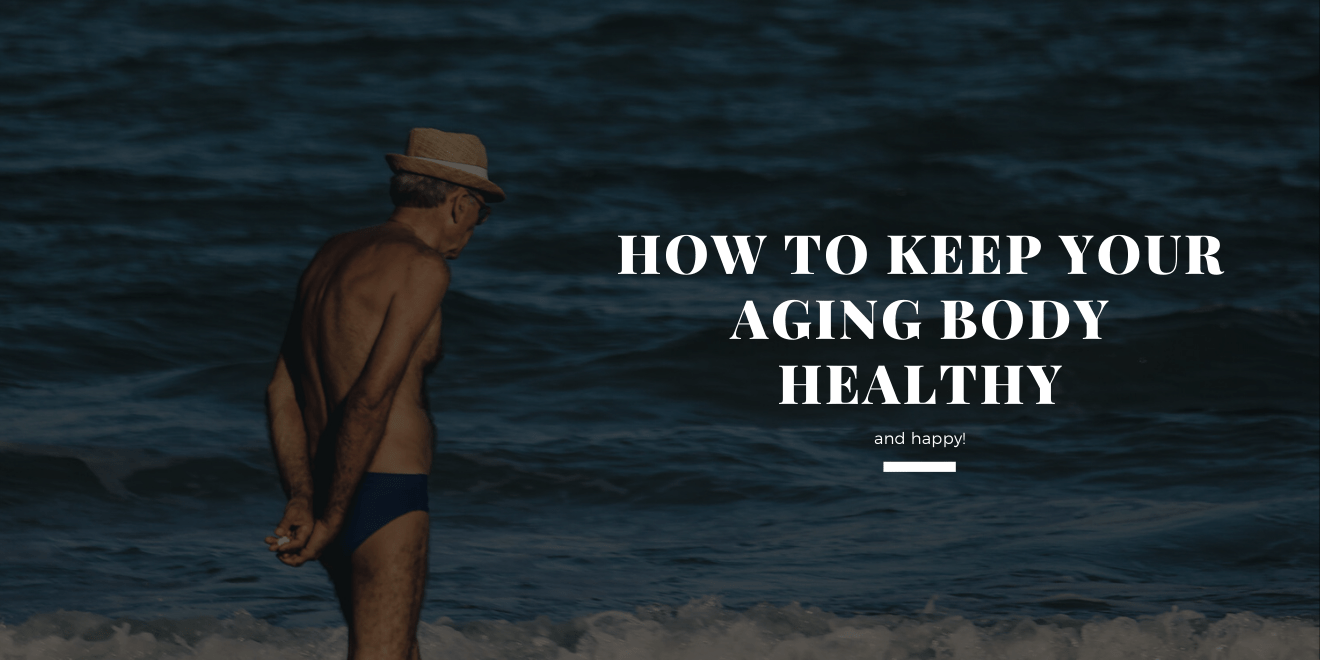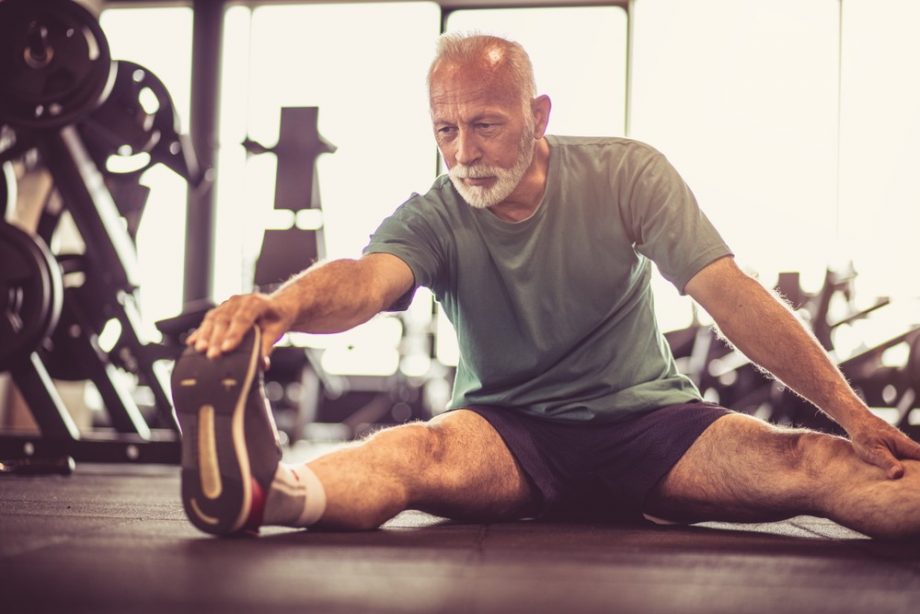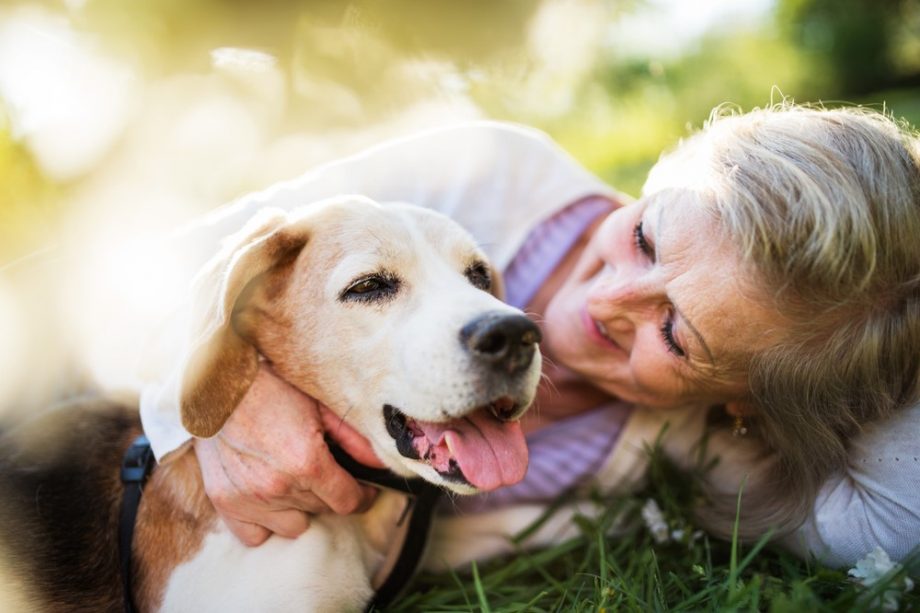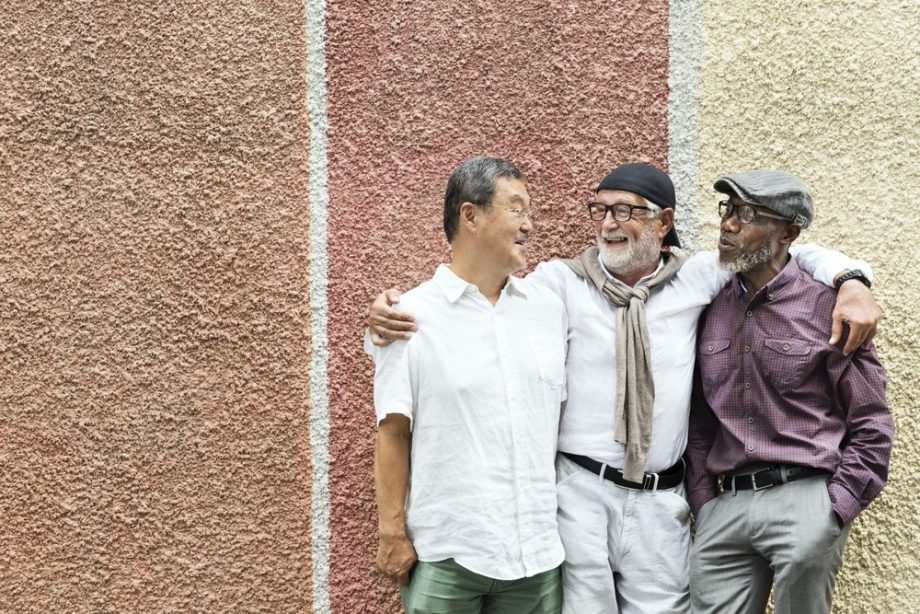How to Keep Your Aging Body Healthy and Happy

Like everything in life, there’s a good side and a bad side to getting older. On one hand, old age brings the joys of retirement, grandkids, and financial stability for many people.
On the other, it brings the challenges that come with aging physically. As we age, many things happen in the body—bones weaken, muscle mass decreases, our eyesight and hearing become less sharp—and these things may make enjoying the fruits of old age a bit difficult.
But if you want to get the most out of these years, there are a few things you can do to support the body so you feel happy and healthy with each passing day.

According to the Centers for Disease Control and Prevention (CDC), the leading cause of death for those aged 65 and up is heart disease (accounting for one in every four deaths), followed by malignant neoplasms (cancer).
According to the American Heart Association, an estimated 80 percent of cardiovascular disease is preventable. Because of these facts, it’s certainly a worthwhile endeavor to spend your older adult years doing everything you can to prevent it, and that mainly comes down to diet and exercise.

Undoubtedly, one of the worst parts about getting older is the physical pain. Our joints may become inflamed, causing arthritis, and the bones can become weaker and less dense, triggering a host of painful conditions throughout the body. All of these things make us even more susceptible to injury. Discomfort is often pronounced in the back, hips, and knees, but there are some things you can do to help lessen the pain and feel like yourself again.
Once you’ve got the fundamentals of good health down to a science with a healthy diet, frequent exercise, and a solid pain management strategy, it’s time to consider some of the lesser-known ways you can nourish the body and make yourself feel your absolute best.

Don’t forget about the strong link between physical and mental health. When you’re stressed, anxious, or sad, it can have a measurable negative impact on your overall health, so caring for the mind is as important as caring for your body.
As an older adult, you may find that common age-related issues are preventing you from enjoying some of the best parts of getting older.
But by doing a few small, simple things and making minor lifestyle adjustments, you’ll feel better as you add more years to the memory book. Focusing on your heart health, a pain mitigation plan, and your mental health are the best ways to give your body the support it needs as you age.
On the other, it brings the challenges that come with aging physically. As we age, many things happen in the body—bones weaken, muscle mass decreases, our eyesight and hearing become less sharp—and these things may make enjoying the fruits of old age a bit difficult.
But if you want to get the most out of these years, there are a few things you can do to support the body so you feel happy and healthy with each passing day.

Prevention Is Key: Focus on Heart Health
According to the Centers for Disease Control and Prevention (CDC), the leading cause of death for those aged 65 and up is heart disease (accounting for one in every four deaths), followed by malignant neoplasms (cancer).
According to the American Heart Association, an estimated 80 percent of cardiovascular disease is preventable. Because of these facts, it’s certainly a worthwhile endeavor to spend your older adult years doing everything you can to prevent it, and that mainly comes down to diet and exercise.
- Eat a heart-healthy diet. The gold standard heart-healthy diet emphasizes fruits and vegetables, whole grains, nuts and seeds, low-fat dairy products, poultry, fish, legumes, and non-tropical vegetable oils (such as olive oil or peanut oil).
- Eliminate the bad foods from your diet, including all foods and beverages that are high in calories but low in nutrients. Be sure to limit trans fats, saturated fats, sodium, red meat, sweets, and sugary drinks.
- Take good care of your teeth. While we still aren’t 100 percent sure if gum disease (periodontitis) directly causes heart disease, we do know that the two are related. Frequent brushing, flossing, and cleanings are crucial in old age.
- Hit a weekly exercise goal. For most people, the goal should be around 150 minutes of moderate physical activity or 75 minutes of vigorous physical activity.
- Monitor your health. Whether by regular visits to your physician or by using a health-tracking app and taking vitals at home, be sure to take and record your weight, blood pressure, and heart rate once a week or so.
- Get a pet. If you’ve been wanting to get a pet, now’s the time to visit a shelter! According to the Journal of the American Heart Association, caring for a pet may play a role in reducing the risk of cardiovascular disease.

Feel Young Again: Address Aches and Pains
Undoubtedly, one of the worst parts about getting older is the physical pain. Our joints may become inflamed, causing arthritis, and the bones can become weaker and less dense, triggering a host of painful conditions throughout the body. All of these things make us even more susceptible to injury. Discomfort is often pronounced in the back, hips, and knees, but there are some things you can do to help lessen the pain and feel like yourself again.
- Try laser therapy. If you’re an older adult with pre-existing conditions, non-surgical treatments like low-level laser therapy can temporarily relieve pain with no known adverse side effects. Try a laser light therapy belt to ease low back pain. This device helps address pain in just a single 30-minute session each day.
- Try hydrotherapy, such as swimming. Not only can spending time in the water help you exercise the cardiovascular system with minimal impact on the joints, but it can also provide a soothing, relaxing massage on the muscles.
- Get routine massages. Massage therapy can help combat stiff, sore muscles throughout the body while also providing the benefits of relaxation and self-care.
- See a physical therapist. If you have lingering pain in a specific joint, tendon, or muscle, it may be related to a weak, tight, or pulled muscle elsewhere in the body. For example, weaknesses or imbalances in the hips can lead to IT band syndrome , which manifests as pain in the outer knee. Seeing an orthopedic doctor and trying a physical therapy program may be good options.
Go Beyond: 4 More Ways to Nourish the Body
Once you’ve got the fundamentals of good health down to a science with a healthy diet, frequent exercise, and a solid pain management strategy, it’s time to consider some of the lesser-known ways you can nourish the body and make yourself feel your absolute best.

Don’t forget about the strong link between physical and mental health. When you’re stressed, anxious, or sad, it can have a measurable negative impact on your overall health, so caring for the mind is as important as caring for your body.
- Socialize frequently. It’s not just good for your mind and mood, it’s also good for your physical well-being. Studies suggest that people who socialize more are less likely to develop dementia, Alzheimer’s, and other cognitive impairments.
- Go hiking, biking, kayaking, or camping. The fact is that being outside in the fresh air is one of the most holistic medicines there is, serving the body in the form of exercise while simultaneously boosting the mood.
- Don’t forget to do strength-building activities, such as weight lifting or resistance band exercises. Building up strength in your muscles can lead to less risk of injury and less pain throughout the entire body.
- Go on vacation. Seriously! Studies show again and again that stress contributes to a number of serious health issues, from high blood pressure (hypertension) to ulcers and irritable bowel syndrome (IBS). Mitigating stress is an important part of staying healthy throughout your life, especially in old age, and going on a relaxing vacation can help you do just that.
Stay Healthy and Enjoy Old Age
As an older adult, you may find that common age-related issues are preventing you from enjoying some of the best parts of getting older.
But by doing a few small, simple things and making minor lifestyle adjustments, you’ll feel better as you add more years to the memory book. Focusing on your heart health, a pain mitigation plan, and your mental health are the best ways to give your body the support it needs as you age.




































































































